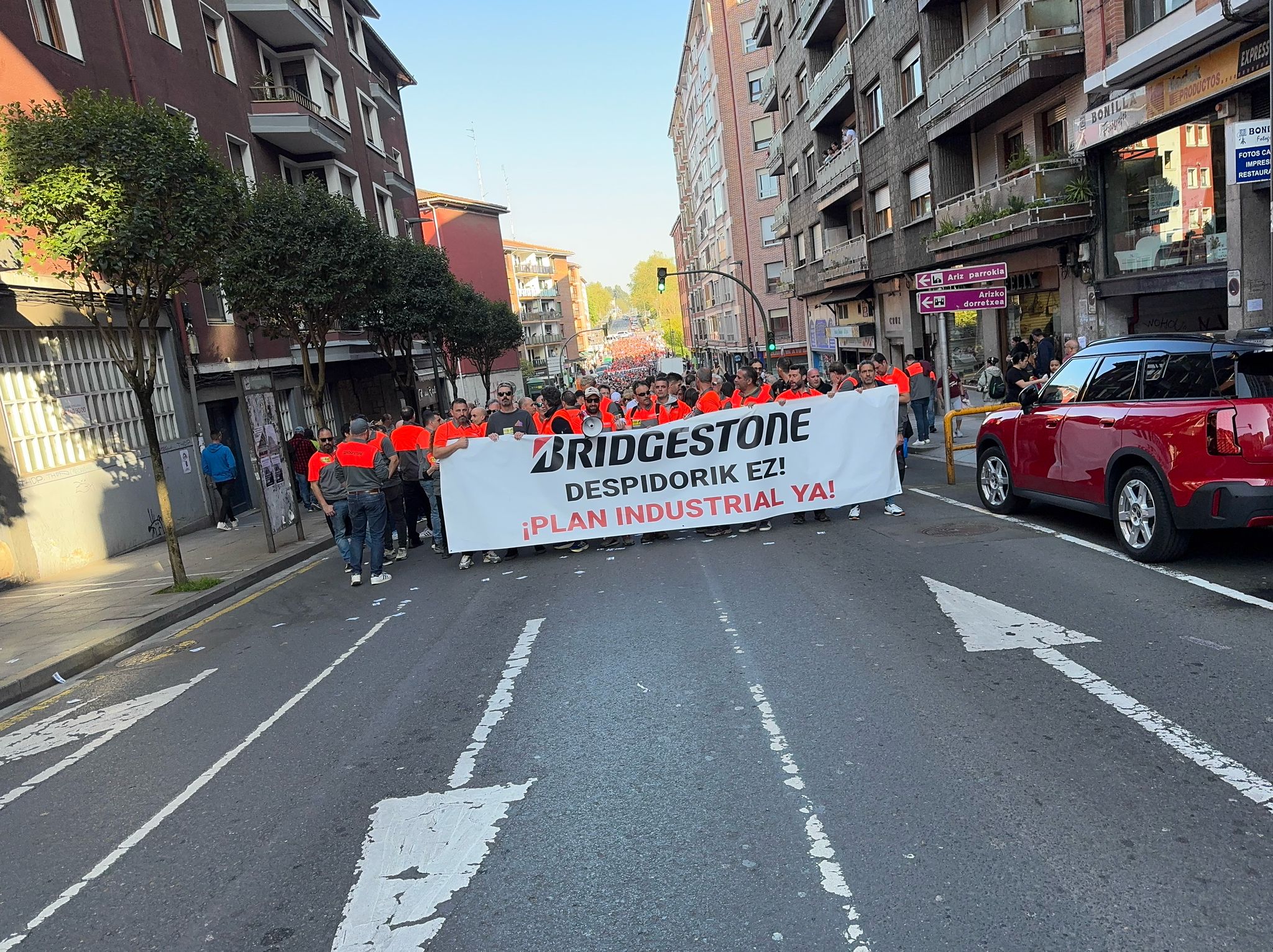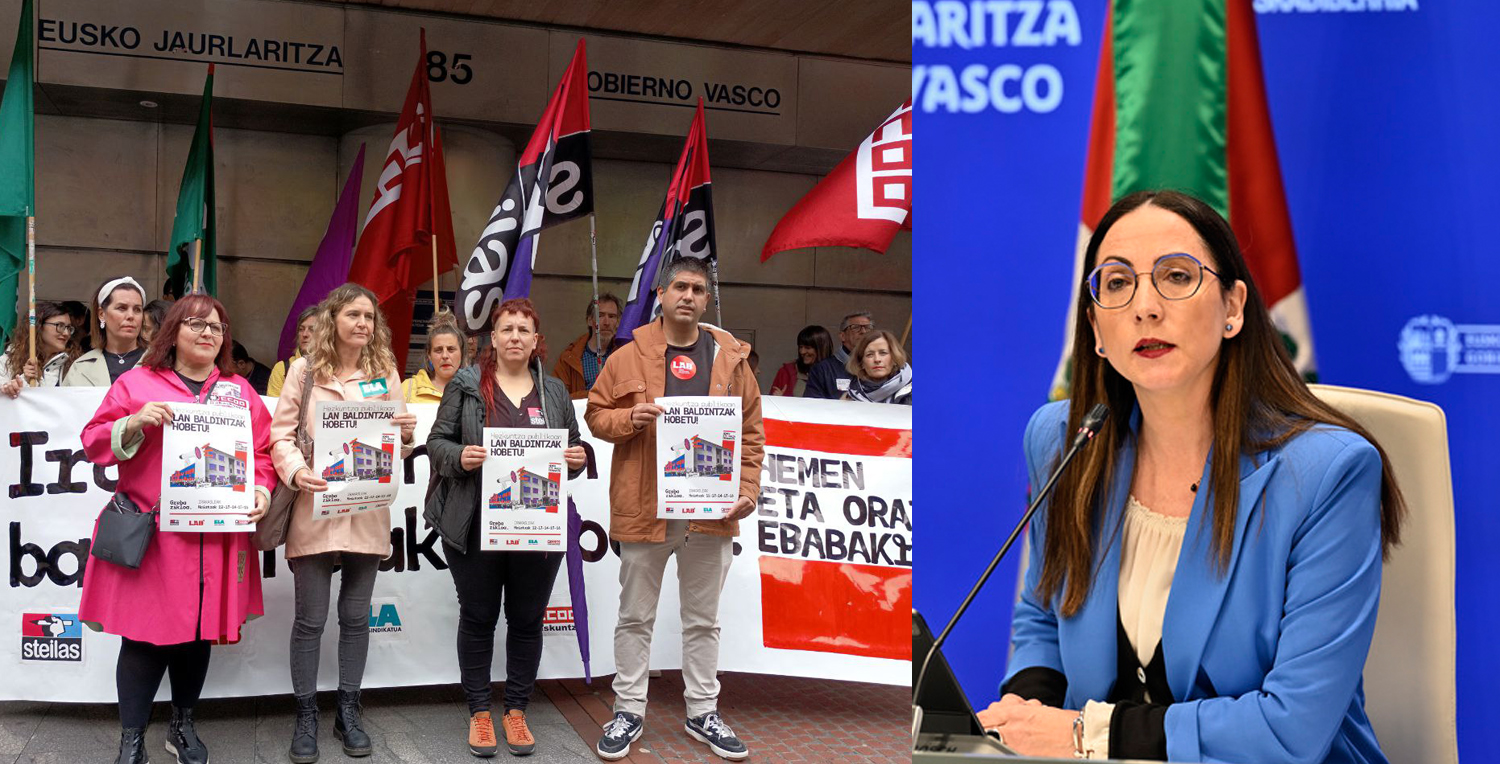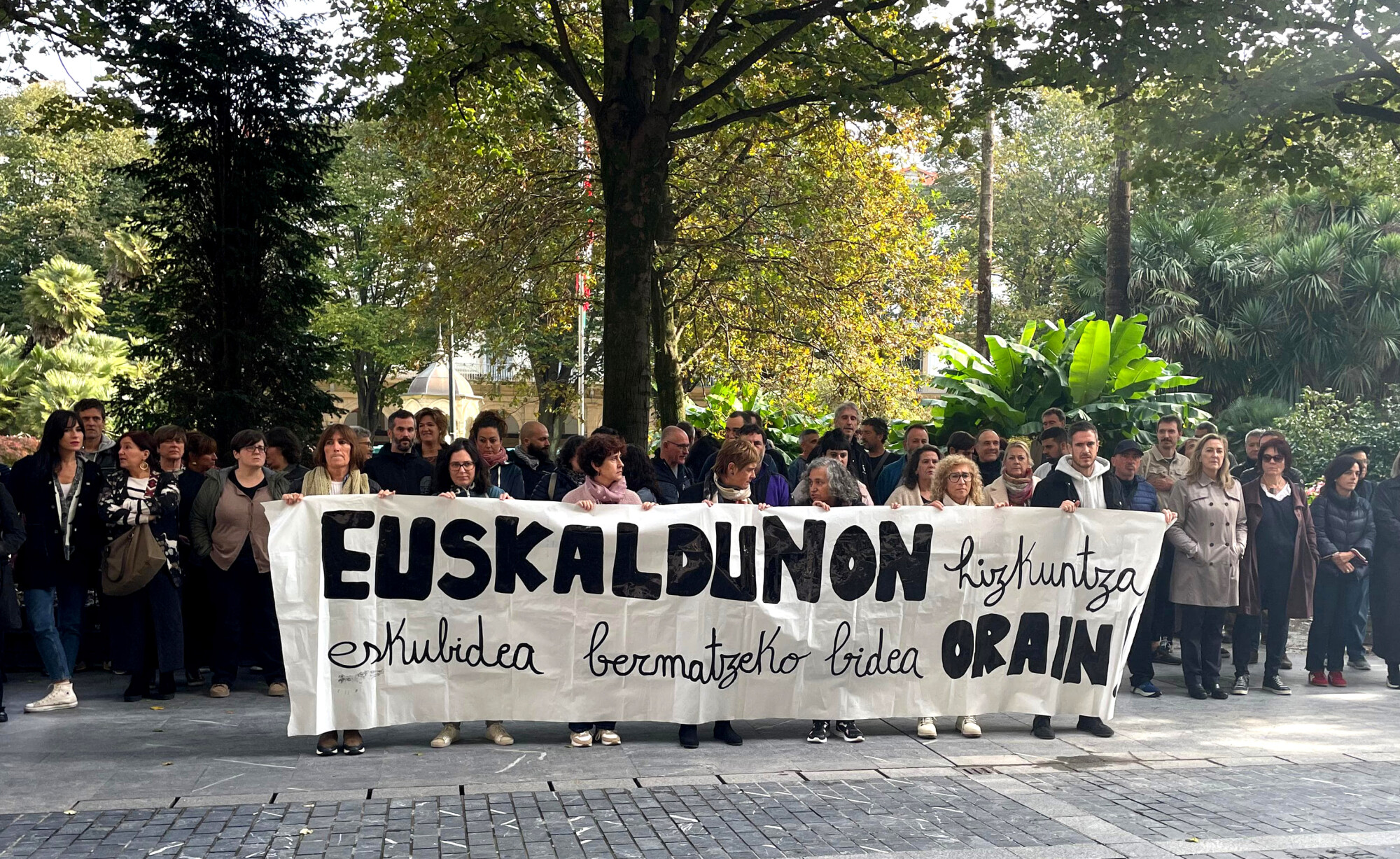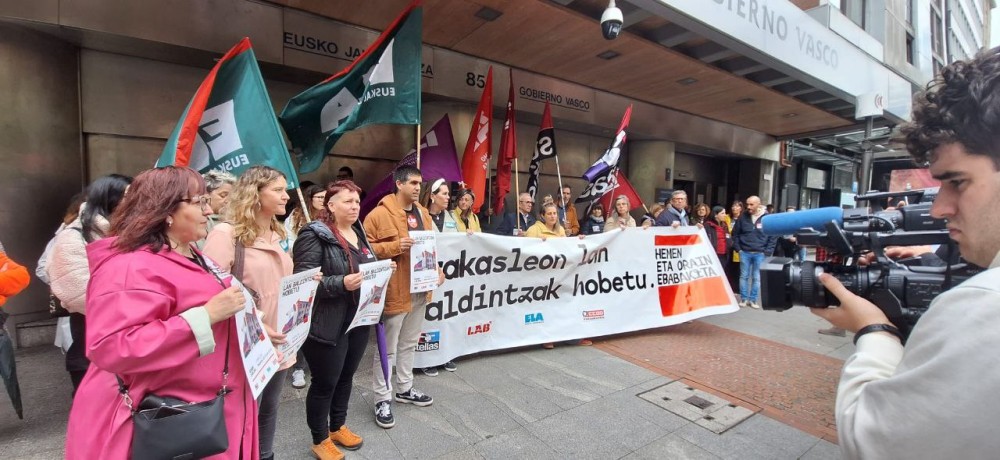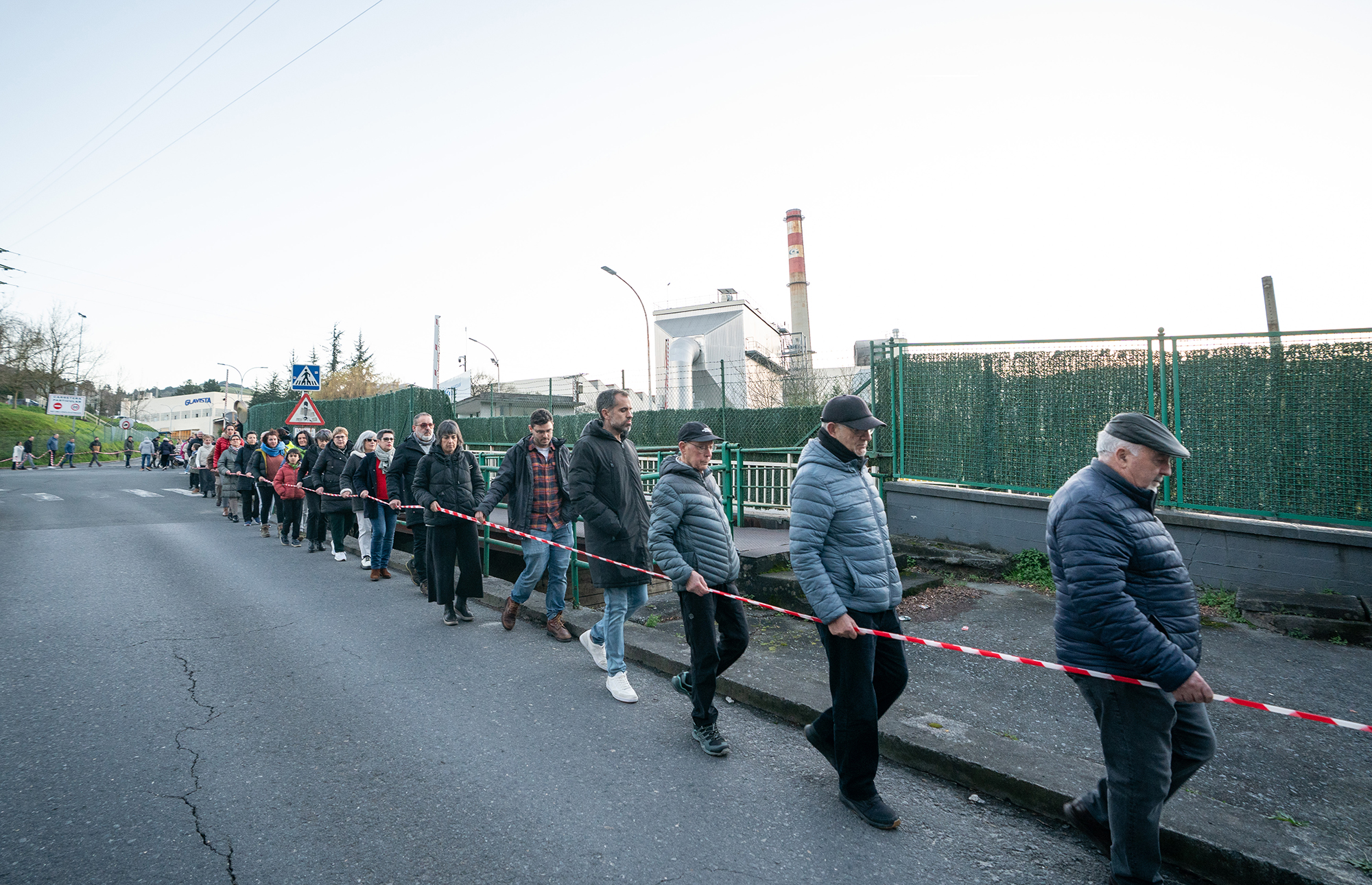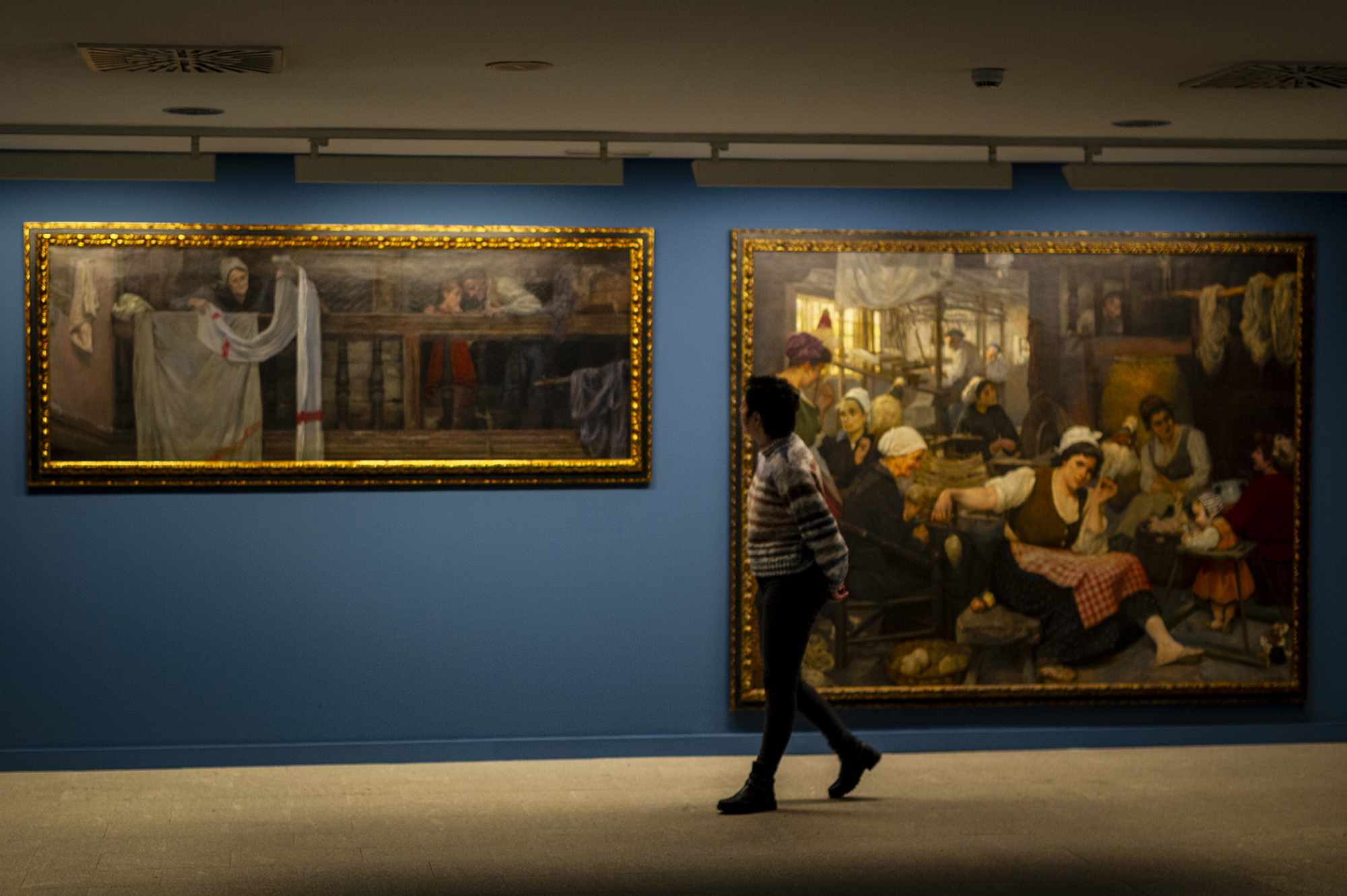The future of workers' rights will be the result of workers' action
- Jon Bernat Zubiri is a Doctor of Labor Economics from Grenoble University. He is currently a professor at the Faculty of Labor Relations at the University of the Basque Country. He has carried out collective studies on the work of young people, trade unionism, economic policies and labor distribution in Euskal Herria, among other issues. On the occasion of International Workers’ Day, the Beyond Funding network interviewed Zubiri on the influence of the capitalist system on workers’ rights.

On the one hand, the violation of the labor rights of migrants, the youth precariousness or the gender gap. On the other hand, the improvement of maternity and paternity leave, the debate to reduce the hours of the week… It is difficult to conceive the future of the rights of workers. Where are we going?
The future of workers' rights will be the result of the action of the workers. History is not written. With a view to the future, there is scope for strengthening the rights of workers. The pandemic has highlighted the poor working conditions of some sectors of workers, especially in feminized sectors (essential, in addition): low wages, unstable jobs, false self-employed, privatized residences, cuts in education and health…
This makes it possible to reach new consensus for workers, especially to strengthen the public and essential sector, to improve employment and to create more jobs. These concrete struggles can give rise to new rights for the entire working class.
For example, as a result of the pandemic, attempts have been made to do some of the best possible things: workers’ layoffs have been increased, ITS has been set up to prevent redundancies, new measures have been taken on occupational health, laws have been made on false self-employed workers… However, there are also claims that have not been achieved. Among other things, it is still possible to lay off workers without measures and in the industry in the Basque Country there are also massive and serious consequences. I believe that workers’ rights are the result of the development of the capitalist economy.
There is a change of trend at the international level in recent years. International institutions have changed the discourse of austerity that already existed in the past. I am not going to go into praise for the International Monetary Fund or for the policies of the European Commission, but it must be acknowledged that there have been changes. The latest reports and measures that are being issued contain recommendations for stabilising jobs, dignifying wages, establishing minimum incomes and making income and distribution policies.
Based on this, we must demand that the discourse of the Basque and Spanish employers is not fair to organize the work of the future and that it is necessary to promote dignity, increase income and work stability, and progressively improve the situation of workers. It is not always the working class that pays for the crisis.
The division of class, gender and race of work seems to be a matter of the past… Is it?
This distribution, rather than being reduced, is aggravated. Class distribution increases in times of crisis. Crises are always times of adaptation and that is when more serious situations arise for some sectors. For example, in the previous crisis (2008), many construction workers remained on the street. As a result, reforms took place in many families; many women went into the labour market because their husbands or family members had remained unemployed. The same is true of the continuing crisis in the industry, which is increasing the distribution of classes. As the profits of some and business conditions improve (in technology, finance, etc.). ). ), so many other small businessmen and workers stay on the streets.
The same could be said from a gender point of view. It is women who have suffered most from the consequences of this crisis and the previous one. After all, it has been women who have worked mainly in key sectors and in the front line. As a result of the cuts, they have on many occasions been outsourced and alone to carry out basic services.
And what about immigrants? Before the 2008 crisis, immigrants residing in Euskal Herria and in Europe did more jobs than the native ones. With the crisis, many immigrants moved to their countries of origin, such as France or Germany, because of the unemployment they had created. Today, immigrants suffer lower wages, higher unemployment rates and more injustices. In crises, they are always the last link.
“We want flexibility, we don’t want bosses… Having two or three jobs is a reality.” Those words of the founder of the company Glovo have caused a stir in social networks. What do you think about this ‘fashion’ of bleaching precariousness?
They're postmodern chimeras that we've seen for a long time. Whatever comes along, with a smile and with self-exploitation, it seems that we have to adapt to the new situation.
The situation of new economies and technology-related sectors has been critical. Especially among young people. They've been wrapped up in what's called the middle class: they've done master's degrees, they know English or French, and then they've finished 500 euros, working on entrepreneurship projects, creative spaces, or many other pantomimas. The failure of many young people in this sector has been palpable.
In addition, a vision has developed in recent times in favor of this: you are always changing, you don’t have the same friends, you don’t live in the same place, you are changing your partner within a consumption trend… This paradigm of instability has been an expansion of the bourgeois paradigm. Capitalism has always offered us the ideology and culture of the upper classes as an aspiration: if you work hard and explain yourself, you will become such a big house, a car or a boat.
A short circuit has been created. We are not at that point and we are not going to go back to that. We also know that the working practices being carried out in companies such as Glovo are often illegal. They hire people without paying anything, and that's not fair.
To address this, in Euskal Herria, the TSJPV president, Garbiñe Biurrun, has promoted social processes and the Spanish Minister of Labor and Social Economy, Yolanda Díaz, has also promoted regulatory impositions. For example, Glovo will have to hire about 5,000 people, because the company’s organizational system is not legal in the state, and that is good.
The discourse of putting life at the centre is now in the mouths of all and is one of the demands of the feminist economy. Is it possible to achieve this in the capitalist system?
There is the possibility of making achievements in the capitalist system. That holistic or ‘more comprehensive’ contribution of the feminist economy has much to do with, for example, the reduction in schedules you mentioned earlier. Feminist economists have made positive and inspiring contributions to the feminist movement, but also to the workers’ movements, environmentalists, the social and solidarity economy, cooperativism, organized communities and religious groups, to reject the capitalist, patriarchal system and the destruction of nature. These philosophies away from capitalism can find a synthesis in the feminist economy.
For example, the Madrid feminist Carolina del Olmo, at the close of the ‘Critical Economy’ conference, in a room full of male economists and Marxists, said that perhaps the fact of working less can be an agreement between all. Having more free time from ecology, from an anti-patriarchal point of view and also from the working class would be beneficial. Because then we will have more time to live, to take care of ourselves, to take care of the world, to consume less… and also more time to do things on our own. In this way, we would not commercialize care services and we ourselves would have time to deal with the problems that exist in our family and in our community. To do this, we have to work less.
It is true that the feminist economy is not only part of this concrete claim, but also demonstrates that its claim can serve to synthesize common interests. One example is Cristina Carrasco, Amaia Orozco and Astrid Agenjo. Three three-generational feminist economists are important and have worked hard with women's groups and collectives. A kind of synthesis is being made of this claim to put life at the center, not to continue in capitalism, but to change capitalism, putting life at the center and moving capital away from the center. Will that end all the capital? No, because the production of resources cannot be completely destroyed. But we can put aside capital, for example, by making it more important for a company to guarantee and dignify work and reduce the gender gap, rather than having more benefits. You can organize like that. All kinds of companies can promote these kinds of ecological, feminist and social values.
What can be done by the organisations that promote ethical finance and the social and solidarity economy in defence of workers’ rights?
We have to row and row to make another model. The origin of the social and transformative economy comes from popular movements that are not modern and from the rural world. People have long been meeting in groups to make decisions and organize infrastructures. The social and solidarity economy is the updating of these original Community values. In the twenty-first century we have other proposals: The development of financial institutions such as Fiare or Koop57, the impulse of energy initiatives such as Goiener, support for fairs and rural networks, the promotion of mass purchasing campaigns such as Errigora in the Ribera de Navarra… Euskal Herria is prosperous in this sense, but at the same time the most corrupt capitalism governs in Euskal Herria. These values clash with the Basque governments that exist today and with the tendency to ‘sell’ Euskal Herria internationally.
There is also a strategic objective of the social and transformative economy: we must go beyond better managing everyday life. It has to be organized, entangled and disseminated everything there is (regulation, regulations, social certifications…). Why is it possible to recruit from public space a company or association that destroys nature and exploits workers? Criticisms must be made for all companies and the social and solidarity economy must promote political initiatives so that what is done is not just on the small scale or on the local level. We have to seek universality. All companies must be social and supportive. Why can egoism be law and not collaboration and mutual help? I believe that something can be achieved.
There is a quote by Marx ‘aitite’: the conditions in the ancient world must be created to build a new world. That is to say, in the old world we have to develop that organization and that framework of work. The construction of the new world (socialist and eco-feminist, for example) requires the development of structures, networks, companies and associations in the old capitalist world. In this way, capitalism can be progressively replaced and decisive steps taken at a given moment.
Will you go to the street on May 1? If so, what will your slogan be?
May 1 is a very important day for the working class, and at the time workers who have died and been injured in such a huge struggle to work eight hours a day are paid tribute. It's a day of struggle for workers, to build new achievements.
My motto is not to defend only concrete or partial demands. To build a new world remotely, in this devastating capitalism, we need to have a long-term direction and not just rely on everyday shocks. It is important for the working class to see that all concrete struggles are important, but that the goal must be to build a viable world for the whole world. This is the only way to ‘save’ the world, by the weather and by the exploitation of materials and resources, so as not to reach a ‘Madmaxian’ world. A world based on justice and equality must be created.
I found the old news on the LIGHT ephemeris channel: On April 23, 1918, Irish workers went on a general strike in I. Against forced recruitment for World War II. Thanks to the response of the workers and independence supporters, Britain was forced to retreat.
We don’t have to... [+]
“Even with all the shortcomings, the unions have done more for humanity than any other human organization that has ever existed. They have contributed more to dignity, honesty, education, collective well-being and human development than any other association of people.” ... [+]









